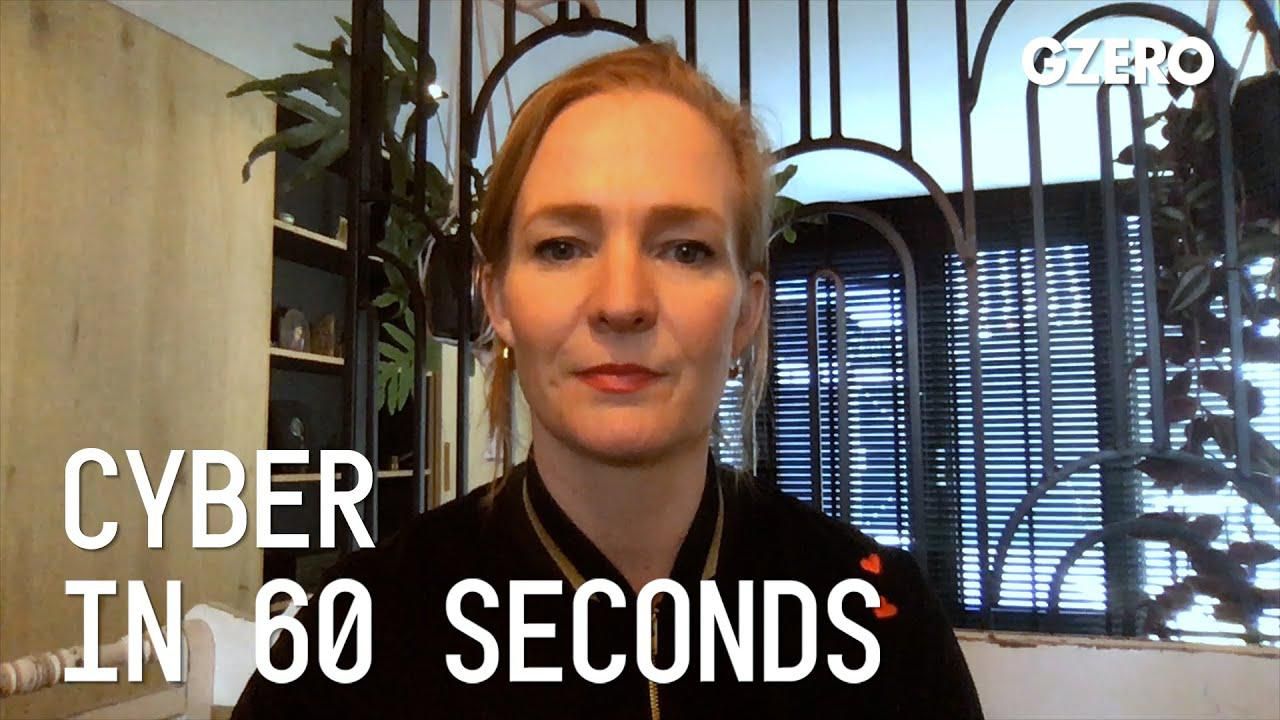Cyber in 60 Seconds
EU & US: democracy frames tech approaches; Australia & Facebook flipflop

EU & US: Democracy Frames Tech Approaches | Australia Facebook Flipflop | Cyber In :60 | GZERO Media

----
Hello, it's Marietje Schaake here, and this is Cyber In :60. A little bit about me. I work at Stanford University. Before that, I spent 10 years as a member of European Parliament and continue to be involved with a number of not-for-profit boards, including as president of the Cyber Peace Institute.
Now, in this series, we're going to look under the hood of the internet, zoom in on technology to show you why the topic of cyber is both personal and geopolitical, touching on your freedoms, your rights, our economy, our security, and so much more.
Now, with that, I have your first question of the week ready to go, which is, "Are Europe and the US at odds when it comes to the ongoing Big Tech regulatory battles?"
I would say yes, but they may also complement each other. Of course, there is a different starting point. The US traditionally strong on national security, the EU on the other hand very much focused on rights protections. But along those different lines, combined you can see the contours of a democratic governance model to deal with technology, and that is what I do think we need in light of the shared challenges that the EU and the US face coming from China, but also from the growing power of tech companies, the privatization of governance, and both erode democracy.
Second question, "What is happening between Facebook and Australia?"
Well, poof, we've seen a lot of flip-flopping. Facebook overnight removed links to news sites in Australia as a hardcore last ditch lobbying effort, but then new talks with the Australian Government happened and now there seems to be a lull in the fight.
Third question, "As the investigation into the SolarWinds cyber hack continues, what have we learned?"
Well, we've learned how connectivity brings along new vulnerability and that a blind reliance on tech companies and the software that they sell is very risky.
I think I have to leave it at that. Thank you so much. My name is Marietje Schaake. That was your Cyber In :60. Well, I think it was more like 120 seconds, but see you again soon.
For China, hitting its annual growth target is as much a political victory as an economic one. It is proof that Beijing can weather slowing global demand, a slumping housing sector, and mounting pressure from Washington.
30,000: The estimated death toll in Iran during the protests at the start of the year, per local health officials, underscoring the scale of the Islamic Republic’s crackdown on its own citizens.
Seventy-eight years after helping found the World Health Organization (WHO), the United States has formally withdrawn from the agency, following through on a pledge President Donald Trump made on his first day back in office.
Mastercard Economic Institute's Outlook 2026 explores the forces redefining global business. Tariffs, technology, and transformation define an adaptive economy for the year ahead. Expect moderate growth amid easing inflation, evolving fiscal policies, and rapid AI adoption, driving productivity. Digital transformation for SMEs and shifts in trade and consumer behavior will shape strategies worldwide. Stay ahead with insights to help navigate complexity and seize emerging opportunities. Learn more here.